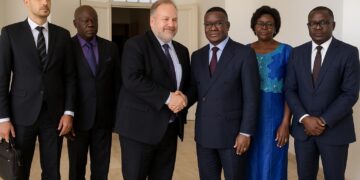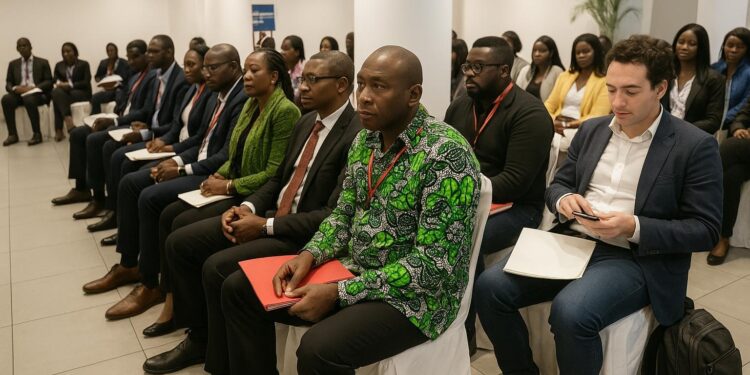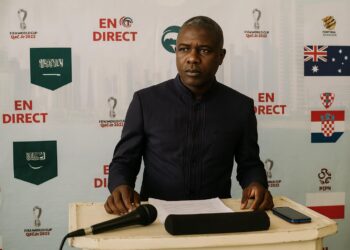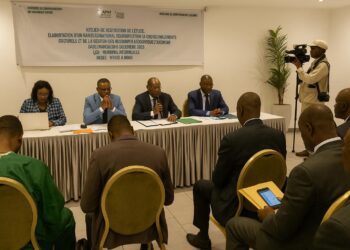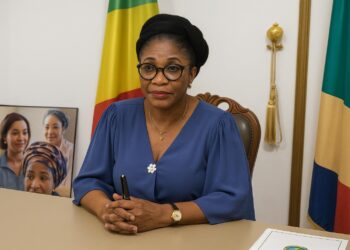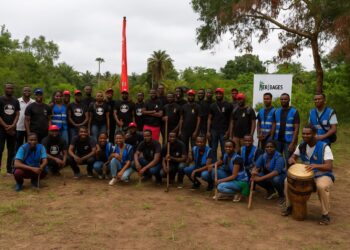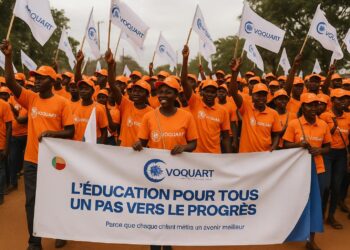Low SDG Ranking Spurs Data Call
Republic of Congo executives, diplomats and investors gathered in Brazzaville for the second Doing Good in Africa Forum to examine how local businesses can accelerate progress on the United Nations Sustainable Development Goals, at a time the country scores 52.8 out of 100 on the global SDG Index.
Bel Lauretta Tene Pambou Dinana, managing director of Afrique RSE Congo, opened the meeting with a straightforward message: without robust national data sets, Congo-Brazzaville cannot accurately position itself on the UN barometer, nor can investors gauge environmental, social and governance performance across supply chains with sufficient confidence today.
Her warning is grounded in the 2023 Sustainable Development Report compiled by SDSN, which ranks the Republic of Congo 154th out of 167 economies, below several regional peers such as Gabon and Cameroon, and well behind Africa’s highest performer, Mauritius, at 77th place on the same metric scale.
Health, Energy and Climate: Priority Axes
The forum lens narrowed to SDG 3 on health, SDG 7 on affordable clean energy and SDG 13 on climate action, areas that jointly account for a third of Congo’s index gap according to SDSN datasets, yet also offer the fastest channels to unlock green capital for local entrepreneurs and communities.
Participants from the ministries of planning, energy and finance agreed that Congo’s legal framework already acknowledges corporate responsibility for the SDGs through Law 37-2018, but they conceded that the absence of its implementing decree leaves reporting obligations, sanctions and incentives largely undefined for both state and private entities.
In a sideline interview, Tene Pambou Dinana underscored the urgency: ‘We must move from declarations to quantified baselines; investors require dashboards, not slogans.’ Her call echoes recent World Bank advice urging Congo to integrate SDG metrics into its Public Investment Management Programme currently under midterm performance review 2024.
Health specialists highlighted that vaccination coverage stalled at 56 percent in 2022, citing WHO data, while maternal mortality remains above 320 deaths per 100 000 live births; both indicators weigh heavily on SDG 3 and, by extension, on workforce productivity and long-term fiscal sustainability according to Ministry of Health briefings 2023.
Energy officials, meanwhile, underscored Congo’s comparative advantage in hydropower and natural gas flaring reduction projects. They noted that the country’s renewable share in installed capacity reached 68 percent in 2023, yet rural electrification lags at 40 percent, illustrating the dual challenge embedded in SDG 7 for inclusive development and industrial growth.
On climate action, the Ministry of Environment recalled Congo’s updated Nationally Determined Contribution, which targets a 17 percent cut in greenhouse-gas emissions by 2030, primarily via forestry preservation in the Congo Basin. However, officials admitted data gaps persist in measuring carbon stocks at concession level across northern departments today.
Regulation and Finance Aligning for Impact
Economic analysts at the forum argued that bridging those information deficits could unlock blue and green bond issuances on the Central African regional exchange, adding that investors increasingly demand science-based targets alongside sovereign guarantees before committing to long-dated infrastructure or forestry finance within the current BEAC regulatory cycle.
Citi’s sustainability desk, represented virtually, referenced recent Kenyan and Beninese SDG-linked sovereigns as precedents the Republic of Congo could emulate, provided that ministries, the statistical office and the private sector agree on a common taxonomy and verification protocol for project pipelines before approaching rating agencies or global investors.
Training Talent for Credible Reporting
Forum delegates repeatedly returned to the skills gap. The Higher Institute of Management in Brazzaville announced it will launch an executive certificate on ESG accounting next semester, seeking to create a cadre of auditors capable of certifying SDG disclosures for banks and listed companies on the local bourse.
Banking regulators attending underlined that forthcoming COBAC guidelines will require commercial banks to publish climate-related financial risk reports from 2025, mirroring the Task Force on Climate-Related Financial Disclosures. Such alignment, they argued, will make SDG datasets legally enforceable rather than purely voluntary for reporting entities across CEMAC jurisdictions.
Digital Statistics Platform on the Horizon
Despite the candid diagnostics, speakers avoided pessimism. The United Nations Development Programme confirmed that a 15-million-dollar technical assistance package, signed in July, will help digitise Congo’s national statistics system, modernise household surveys and establish an online portal for corporate SDG submissions before mid-2025 subject to parliamentary ratification soon.
Roadmap Signals Private-Public Resolve
By the forum’s close, organisers produced a roadmap committing twenty large companies and four ministries to publish baseline SDG data by December. Though voluntary, the roadmap assigns focal points and sets quarterly reviews, a step hailed by the Chamber of Commerce as ‘ground-breaking for transparency’ in Congo today.
Whether the roadmap translates into a higher UN ranking will depend on meticulous follow-up, but the forum underscored a consensus: credible numbers are Congo’s entry ticket to climate finance and diversified growth, not merely a statistical exercise for external observers or a public-relations gesture toward donor capitals abroad.








